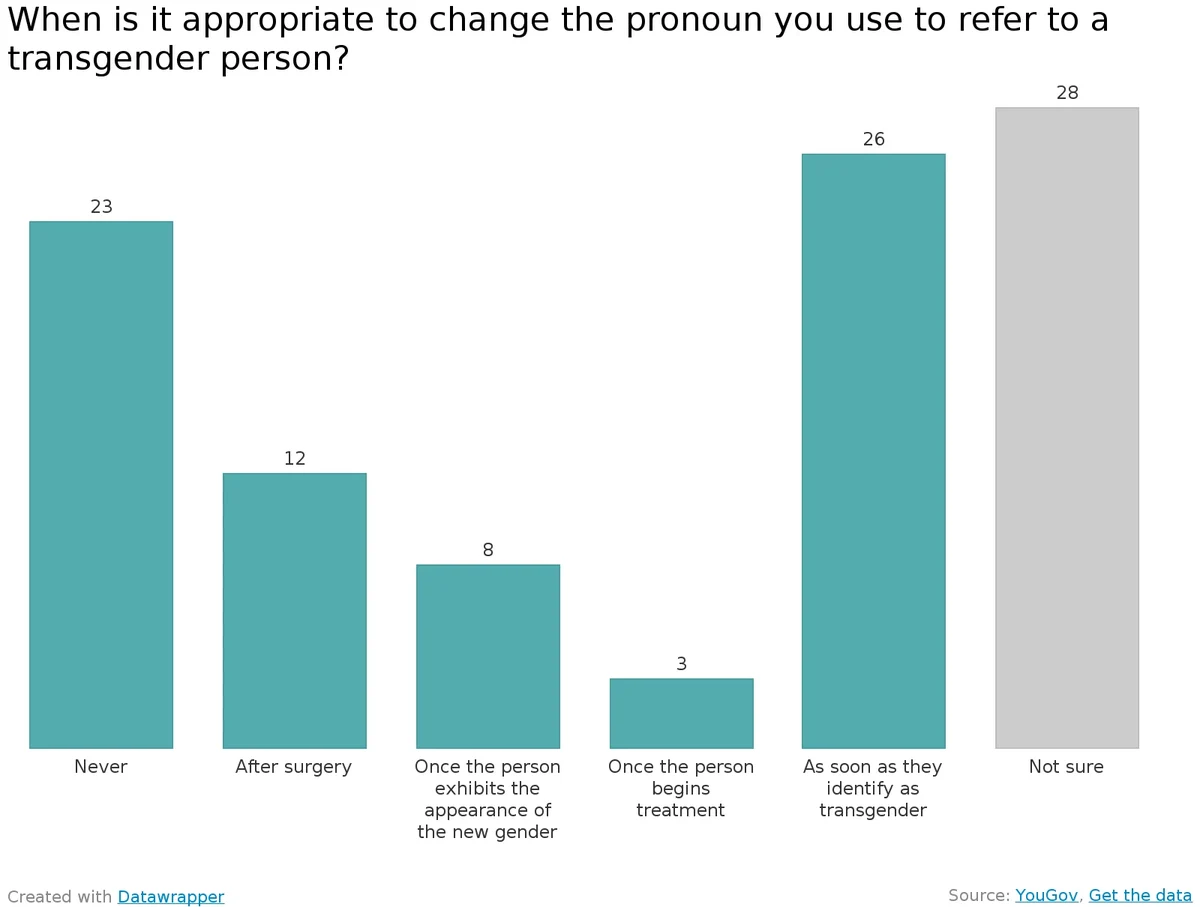Many Americans are unsure of when to change how you refer to a transgender individual, but most don't think that insurance companies should have to pay for gender surgery or counselling.
Pfc. Manning - who was recently sentenced to 35 years in prison for releasing hundreds of thousands of classified documents to the public - recently announced that she intends to undertake gender reassignment surgery and wants to now be known as 'Chelsea' and not 'Bradley' Manning. The Army has not yet recogized this change and Manning's lawyers are considering a lawsuit for her to be able to begin hormone therapy in prison. Many media organizations have already begun referring to Manning as 'she' instead of 'he', though some - including NPR - rapidly changed their positions after initially saying that they would still refer to Manning as 'he'.
The latest research from YouGov shows that Americans are largely divided as to when it is appropriate for people to change the pronoun with which they refer to a transgender person. In practice, this means the point at which Manning is referred to as 'she' instead of 'he'. Americans are neatly divided on the issue, with the most common response (28%) being 'not sure'. 26% say that people should change how they refer to a transgender individual as soon as they begin identifying as transgender, while 23% say that it is never appropriate to change how they are referred to.

How Americans respond to this question differs significantly according to age, with 41% of under-30s saying that the change should be made as soon as the person identifies as transgender. People aged 65+ are generally unsure (35%) while the most common response of people aged 45-64 is 'never' (31%).
When Americans are asked whether insurance companies should be required to treat costs associated with treating gender identity disorder, 50% oppose the requirement while 22% support it. Every demographic opposes the requirement except Democrats, who are split (34% vs. 34%) on whether the requirement should exist. 74% of Republicans oppose it.
Full results can be found here.
Image: Getty.










